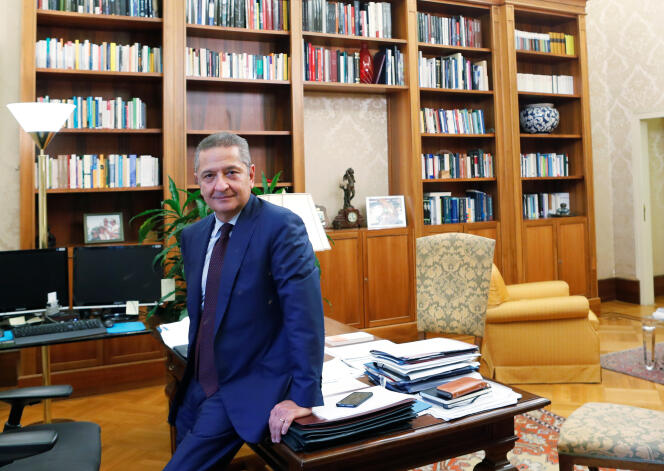
Is the European Central Bank (ECB) at a turning point? On Thursday, June 1, its president, Christine Lagarde, hinted for the first time that the sharp rise in interest rates might soon come to an end: "We are approaching our cruising altitude and we need to go up more gradually."
In an interview with Le Monde, Fabio Panetta, one of the six members of the ECB's Executive Board - and considered to be the most in favor of easing monetary policy - concurs, believing that the institution is "not far" from the end of its rate hike but also fears a "technical recession" for the eurozone in 2023.
The ECB’s objective is to keep inflation at 2%. It is currently at 6.1%. Should people be worried?
There is no doubt that 6.1% is too high, but people should not be worried. We will bring inflation back to 2%. In less than a year, we have raised interest rates decisively, from -0.5% to 3.25%, and inflation is falling, as confirmed by yesterday’s data.
As a result of our rate hikes, banks are increasing lending rates and reducing the loan supply. This is being passed on to the real economy: Firms are taking this into account when they plan their future investments, as are households when they take out home loans. But monetary policy typically exerts its impact over extended periods. It takes several quarters before its effects are fully felt by the real economy and then transmitted to inflation.
But how long will it take before inflation returns to a reasonable level, like 3%, for example?
Our March projections suggest that inflation should hover around 3% early next year and approach 2% in 2025. However, this scenario does not account for any potential, unforeseen shocks.
Since the autumn of 2021, the ECB has been saying that inflation will soon return to 2%. Why should Europeans believe you now?
Investors understand that inflation has risen because of a series of adverse global shocks that are beyond the control of monetary policy. They know that we will intervene until we see inflation heading convincingly toward our 2% target and they expect it to return to that level. So far we haven't succeeded, but not because of the reasons suggested by commentators in 2021 who predicted a sharp rise in inflation. Nobody had foreseen the severity of the supply chain bottlenecks, the war in Ukraine or Russia’s manipulation of energy supplies. Without these unpredictable events, the economic landscape would be quite different, with significantly lower inflation.
Does inflation only reflect the war and the pandemic? In 2020-21, euro area governments had built up a very high deficit. This massive stimulus was only possible because the ECB made huge debt purchases. In hindsight, was this a mistake? Did you loosen monetary policy too much?
You have 66.14% of this article left to read. The rest is for subscribers only.